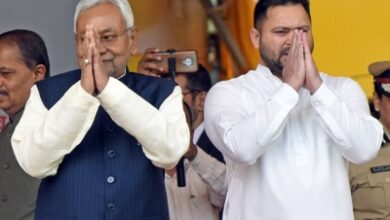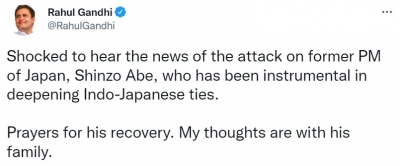Resumption Of Intellectual Debate In Parliament, Assemblies Is The Need Of The Hour: Supreme Court

New Delhi, Jan 28 : The Supreme Court on Friday said that Parliamentand Assemblies are becoming insensitive places and to get out of such a hopeless situation, it was necessary to take corrective steps towards restoring the dignity and standard of intellectual debate of the highest order. “It is high time that corrective steps are taken by all concerned and the elected representatives would do enough to restore the glory and the standard of the intellectual debates, which should be of the highest order, as have been chronicled of their predecessors,” said a Bench headed by Justice A M Khanwilkar and also comprising Justice C T Ravikumar.
The Court made these observations, while setting aside the indefinite suspension of 12 BJP MLAs from Maharashtra Assembly, after noting that such suspension could be only limited to the Monsoon session 2021. This was not a case of mere procedural irregularity committed by the Legislature, but of substantive illegality, noted the Bench, adding that Parliament or state legislatures are not a place to create ruckus, but a place where policies and laws are enacted for the welfare of citizens.
The Court said, “To become a world leader and self-reliant/ dependent, the quality of debate in the House should be of the highest standard. The debate should be directed towards the internal, constitutional and federal issues, being faced by the common man.” The Top Court also made it clear that aggression during the debates has no place in the setting of a country governed by the Rule of Law. Even a complex issue needs to be resolved in a congenial atmosphere by observing collegiate and showing full respect and defence towards each other. This would also be violative of basic democratic values, allowing a coalition government with a thin majority to manipulate numbers, it added. “Anything in excess then for a day or the remainder of the ongoing Session, would not be necessary much less rational exercise of inherent power of the Assembly,” the bench said.
The Apex Court passed the order on a joint appeal filed by the 12 suspended BJP MLAs, led by Ashish Shelar. Calling the suspension unconstitutional and arbitrary, the Bench observed, “It is a drastic measure trenching upon imposing penalty more than disciplinary or corrective measure, beyond the limited inherent powers of the House.” The Bench said,
“We have no hesitation in concluding that the resolution suffers from the vice of being unconstitutional, grossly illegal and irrational to the extent of period of suspension beyond the remainder of the concerned Session.” The Court in its judgement held that the suspension could have only been for the ongoing Monsoon session in July ’21.
The Supreme Court had on January 19, reserved its order on plea of 12 Bharatiya Janata Party (BJP) Member of Legislative Assembly (MLAs) from Maharashtra challenging their one-year suspension from the state Legislative Assembly for allegedly misbehaving with the presiding officer. On July 22 last year, they had filed the plea in the top court, challenging the resolution passed by the Assembly to suspend them for one year. The 12 suspended members are- Ashish Shelar, Sanjay Kute, Abhimanyu Pawar, Girish Mahajan, Atul Bhatkhalkar, Parag Alavani, Harish Pimpale, Yogesh Sagar, Jay Kumar Rawat, Narayan Kuche, Ram Satpute and Bunty Bhangdia.
They were suspended on July 5, 2021 from the Assembly for one year after the State government had accused them of “misbehaving” with presiding officer Bhaskar Jadhav in the Speaker’s chamber. The motion to suspend these MLAs was moved by state Parliamentary Affairs Minister Anil Parab and passed by a voice vote. During the course of the arguments, the Apex Court had said suspension from Legislative Assembly for one year should be linked with some purpose and there has to be an “overpowering” reason that the member should not be allowed to even attend the next session.
The Bench had observed that the resolution passed by the Maharashtra Legislative Assembly suspending 12 BJP MLAs, is prima facie “unconstitutional” as such a suspension cannot operate beyond six months owing to a constitutional bar. It had said explicit outer limit as per the Constitution for an MLA to be absent from his seat is 60 days, after which the seat is deemed to be vacated. “How long can seat remain vacant? At the most six months outer limit can be there. Here we are talking about a constituency being represented in a parliamentary form of democracy? Is this not hitting the basic structure of the constitution when the 12 constituencies are unrepresented?” the Bench had asked. “We can say that the decision to suspension can only operate till 6 months and later than that it will be hit by constitutional bar,” it had added.
The Bench had also taken exception to the arguments of senior advocate Aryama Sundaram, for Maharashtra Assembly, that the House has absolute powers to frame its own rules including on period of suspension of its members. To this the Bench had then said that even if the Assembly rules are read in consonance with the Constitution, the maximum bar could be for six months only. It further had opined that the decision of suspension is even worse than expelling them, since no one can then represent the constituents of the suspended representatives in the Assembly.
The court favoured a graded approach in dealing with members of the House, saying suspension beyond the Session would be bordering on punishing not only the member concerned, but also inevitably impact the legitimate rights of his constituency






